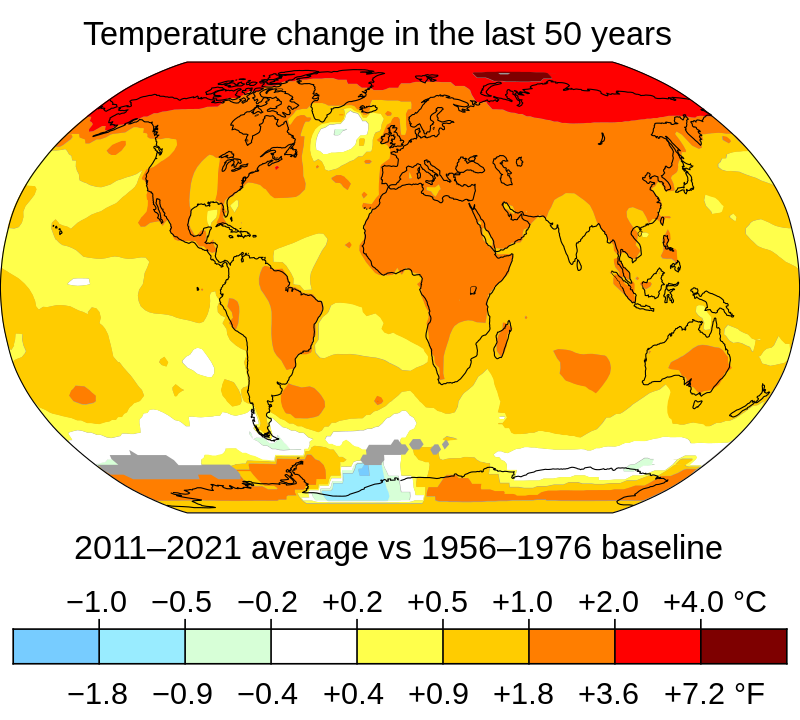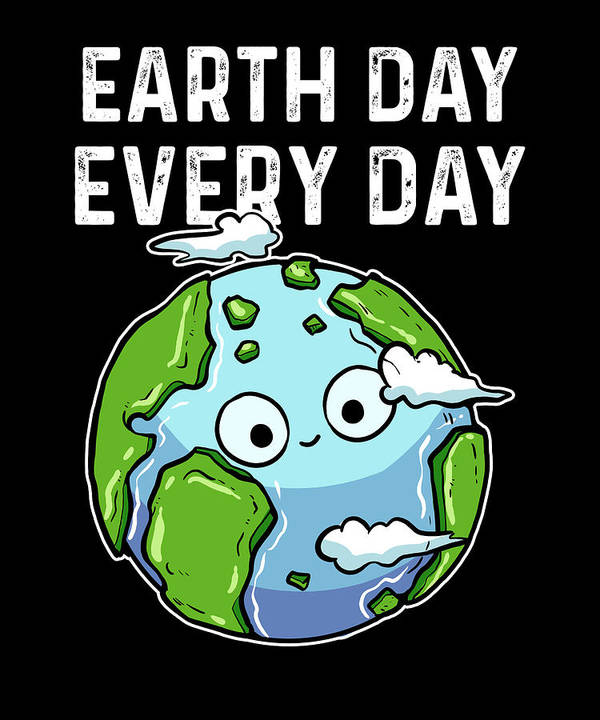
Open-response surveys are a great way to get a sense of how children view climate change. To measure children's interest in science, these surveys employ a variety of methods including focus groups and interviews. These surveys have had remarkable consistency over the past ten years.
Surveys have shown that people who care about climate issues are more likely to see negative impacts from climate change, believe that the effects of climate change are more likely to be mitigated, and have a more optimistic view of how climate scientists work. They also have a higher likelihood to believe that climate change solutions will succeed.

There are three main types of scepticism: one related to whether the climate is changing; another to whether it is caused by human activity; and a third to how 'bad' the climate may be. Some questions explicitly expressed scepticism about the existence of climate change, and some asked for proof that the climate is changing. In addition to asking participants to make statements about how they would act, many of these surveys asked about the nature of the phenomenon and the causes of climate change.
These questions expose the diverse and rich ways children see climate change. Children use science-fiction themes and speculative language to answer these questions. Although this may indicate that some participants are familiar with climate change, it also suggests that others are creating inaccurate, intuitive theories.
When asked about the worst thing that could happen to climate change, participants often linked the future consequences to events seen in movies or video games. Participants were unable to connect the future effects of climate change with those of non-human-caused and human-caused climate changes. This result suggests that participants are generating inaccurate theories about climate change, and that if these ideas are not addressed, they could persist indefinitely.
Some of the survey questions were more scientific and speculative in their descriptions of future impacts from climate change. Participants were asked to envision the consequences of climate change in the distant future, and to think about the impacts of climate change on humans and animals in the future.

Several questions in this category asked about the geographical location and timing of climate change effects. One question required participants to estimate the effects of climate change on the United Kingdom. Another asked about how climate change will affect the food and agricultural industries.
The most common type of climate change questions were those that addressed the nature of the phenomenon. The most common type of questions on climate change were those that asked people about the causes, current climate and the impact of climate change on their health. Most of these questions were broad and general, with the exception of a few that alluded to personal action that ordinary people could take.
FAQ
How can developing countries and communities cope with the effects of climate changes?
Due to their lack of access to resources, health care systems, and technology, communities and countries in developing countries are more vulnerable to climate change. Changes in temperature and precipitation can put more pressure on already limited resources. This is accompanied by flooding and droughts that weaken already fragile ecosystems. Rising temperatures can result in a reduction in crop yields. This will be disproportionately detrimental to poorer communities who are facing food insecurity. Extreme weather events like hurricanes or heatwaves can also cause destruction to infrastructure, causing further economic inequality.
Climate change has long-term consequences. They will lead to continued resource scarcity, extreme poverty, and adverse health effects, including increased incidences of vector-borne illnesses like dengue fever and malaria. In addition, there will be a higher risk of flooding due to rising sea levels coupled with extreme weather events putting lives at risk in coastal areas where populations often lack the adequate infrastructure or emergency services needed for evacuation. To build resilience against these risks, mitigation of greenhouse gas emissions is necessary. Other measures include improved management and better access to water resources.
How is extreme weather related to climate change
Global warming has directly affected extreme weather phenomena such as heatwaves. Global warming has led to increased atmospheric temperatures.
Climate scientists claim that the frequency of extreme weather related disasters has more then doubled since 1980. As sea temperatures rise, so do wind patterns. This has an impact on the normal distribution and strength of hurricanes and storms across different regions of the planet.
The 2015 El Nino event pushed warm water toward South America resulting in rising temperatures at an alarming rate along with heavy rains that triggered floods in Peru and Bolivia resulting in the displacement of people and property damage. Many places, including Antarctica has recorded its highest temperature ever. This is an indication of a strong correlation between global warming trends & the occurrence/frequency of extreme weather phenomena around the globe.
Another example of climate change at work is Hurricane Irma. It was a major storm that struck Florida in 2017, causing economic losses of $50 billion.
The Intergovernmental Panel on Climate Change (IPCC) concluded that human activities are increasing the severity of current climate change which naturally leads to more frequent, severe, and intense natural disasters globally hence bringing forth strong evidence regarding humans' relation to extreme weather events occurring at frequent intervals around us all.
What's the current climate in the world? And how does it change?
The current state of the global climate is one of unprecedented change and uncertainty. Temperatures are rising rapidly due to unprecedented levels of atmospheric carbon dioxide. This is causing heat waves, droughts, changes in rainfall patterns, melting of polar ice caps and ocean acidification as well as an increase in sea level.
These changes are already having a profound affect on ecosystems worldwide, causing extinctions or disruptions of habitats. They are also threatening the lives and livelihoods of billions of people, particularly those in areas already facing resource scarcity and poverty.
Due to the higher average surface temperatures due to human activity, extreme weather events like hurricanes, cyclones and wildfires have been steadily increasing over time. This trend is expected to continue into the future as temperatures continue to climb.
The effects of a rapidly changing global climate can be felt everywhere from rising food insecurity to displacement from extreme weather events or sea level rise forcing communities to relocate. Climate change is also creating social inequalities bydisproportionately affecting marginalized populations that don't have the knowledge and resources necessary to adapt.
While progress has been made in some countries in terms of reducing carbon emission or developing renewable energy programs, there has yet to be any meaningful action taken at a global scale that would allow us to address these issues effectively. In order for us to prevent further disruption and devastation from climate change all nations must come together and take urgent action now while at the same time planning for adaptation in an increasingly uncertain world.
How does climate change politics impact global efforts?
Climate change is highly politicized and has caused division between governments, individuals, and nations. The political stances taken by different actors will impact the implementation measures to combat climate changes. It has become increasingly difficult to come to an agreement on how to address this urgent environmental crisis globally.
Most scientists agree that humans are causing climate change. This is why it is urgent to act. Politics surrounding these issues can often hinder global cooperation, which is required to make effective progress in implementing sustainability energy practices and upholding regulations protecting natural environments, researching viable technological options, and other climate-change interventions.
Many governments around the globe want to protect business interests and enforce policies that restrict business activities. This often clashes with regulations that experts recommend for effectively addressing climate change. Without strong international commitments and wide-spread international action, it can be very difficult for any individual state or group of nations to address climate change effectively through legislation.
It is difficult to reach a consensus about how to address climate change because of differences in power dynamics between countries. Countries with more economic power may appoint themselves to be represented on international bodies for negotiations about the environment. This can lead the to divisive discussions between the countries' interests and the collective interest. At both the national and international level, there have been extensive discussions about potential side effects of radical changes like geoengineering.
A grassroots movement has also struggled against powerful opposition, including corporate ownerships as well-funded lobbyists trying to keep their industries politically favorable. This is especially true when it comes funding research into alternative energy production and enforcing mandates for renewable energy technology. Individual governments need to be clear about the potential rewards and outcomes of making valid progress on the issue. They cannot seek short-term spectacles or gains to gain public support.
A coordinated effort to reduce our environmental crisis will only succeed if resources are distributed properly and there is no political divide between nations.
Statistics
- features Earth's average surface temperature in 2022 tied with 2015 as the fifth warmest on record, according to an analysis by NASA. (climate.nasa.gov)
- According to the 2014 report on Climate Change Impacts, Adaptation, and Vulnerability (page 8) from the United Nations Intergovernmental Panel on Climate Change, governments at various levels are also getting better at adaptation. (climate.nasa.gov)
- According to the 2014 report on Climate Change Impacts, Adaptation, and Vulnerability (page 8) from the United Nations Intergovernmental Panel on Climate Change, governments at various levels are also getting better at adaptation. (climate.nasa.gov)
- The 100 least-emitting countries generate 3 per cent of total emissions. (un.org)
- Fossil fuel production must decline by roughly 6 percent per year between 2020 and 2030. (un.org)
External Links
How To
How to Reduce Your Carbon Footprint and Fight Climate Change
There are many things you can do to help reduce your carbon footprint, and fight climate change. First, you can reduce your energy consumption by purchasing energy-efficient appliances, lighting and insulation. You can also cut down on energy by not plugging electronics, using public transport, walking, and lowering the temperature in winter and summer.
Second, recycling materials is a good idea. You can compost food scraps and not throw them away. Third, plants trees around your house for shade and natural cooling. The air absorbs carbon dioxide through the vegetation. Consider purchasing products that are minimally packaged or sustainably labeled, such as organic cotton and FSC-certified timber. This will ensure that the forest is healthy.
Other than reducing your personal emissions, you may also be able to support organizations that work towards lowering global emissions. Organizations such as Emissions Reduction Alberta or Climate Change Solutions; The Pembina Institute; The Nature Conservancy Canada and The Nature Conservancy Canada are all working towards reducing emissions via clean energy investments. International initiatives such ICLEI (Local Governments for Sustainability)'s urban sustainability strategies program can also be supported.
All of us can make small changes to our daily lives and help combat climate change.